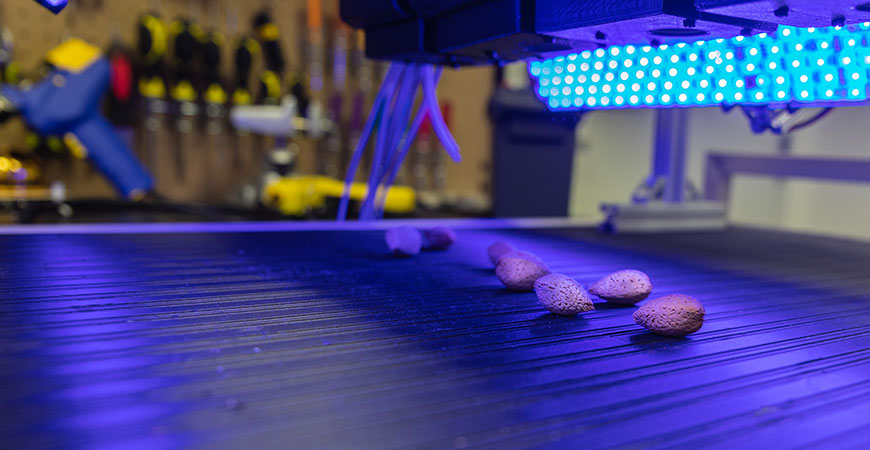
Incoming first-year and transfer students will have a new resource for success and an introduction to research starting next summer, thanks to a four-year, $400,000 grant from the U.S. Department of Agriculture.
Civil and environmental engineering Professor Colleen Naughton is heading up the USDA’s Research and Extension Experiential Learning for Undergraduates (REEU) program, which will provide a bridge for incoming students. The Center for Information Technology Research in the Interest of Society (CITRIS) at UC Merced will host the program.
The six-week summer immersion program will connect five undergraduates and five transfer students each year with faculty mentors from all three schools to work on projects related to food security and provide tools, research and a highly educated workforce to benefit the agriculture, natural resources, technology, and human sciences fields.
“We want to get students interested and give them a jump-start into university life and research,” Naughton said. “We are focused on sustainable agriculture and what it will be in 2050, and the challenges of food security for 9 billion people around the world. We are developing technology to meet those challenges. The students can think of this bridge program as ‘pre-training.’”
Naughton said there is already a lot of important and exciting research happening at UC Merced, and she wants to offer a diverse group of REEU students a variety of research opportunities. Their varied backgrounds and life experiences will bring many different voices to bear on the projects, and they will get practical immersion in food production to fully understand and develop the technology that will address food security needs.
The six-week bridge includes on-campus housing, 30 hours a week of paid research, research supplies, field trips to area farms, workshops and more. Though the program is led by faculty in the School of Engineering, the program offers a diverse array of research projects for students to participate in, including agroecology and food production; nutrition and food security; digital agriculture and spatial analysis; mechatronics and embedded systems; environmental and agricultural economics; soil biogeochemistry, microbiome and soil remediation; integrated pest management; robotics and machine learning; life cycle assessment; and hydrology and water management.
Students are encouraged to follow the CITRIS website for updates, as recruiting for next summer begins soon.
“CITRIS is excited to support this endeavor because it not only advances our expertise in ag-food-technology and research in climate-smart practices, but also develops critical skills for our students to give back to our local community,” said CITRIS Director Professor Joshua Viers, a co-principal investigator and one of the faculty mentors.
Naughton was a first-generation student herself, and knows incoming students need more than just research and academics, so the program will also offer peer-to-peer mentoring and training in life skills such as budgeting, studying and stress management — all needed for success at the university. Additionally, transfer students are often older than their incoming peers, and can feel isolated. The program will help them acclimate to the university and network with others to build community.
This proposal was one of 26 selected for funding across the nation and is part of the National Institute of Food and Agriculture’s Agriculture and Food Research Initiative – Workforce Development.
“Our ultimate goal is to train a diverse and competitive agricultural workforce that will increase agricultural productivity and food security for those who need it most,” Naughton said.
Lorena Anderson

Senior Writer and Public Information Representative
Office: (209) 228-4406
Mobile: (209) 201-6255






